Lac-des-Cygnes Hike (The Ultimate Guide)
Are you looking for a good hiking challenge in Quebec? Look no further, the Mont-du-Lac-des-Cygnes trail in Charlevoix is for you!
Here is our ultimate guide to this rewarding adventure.
#1. What is the Mont-du-Lac-des-Cygnes hike?
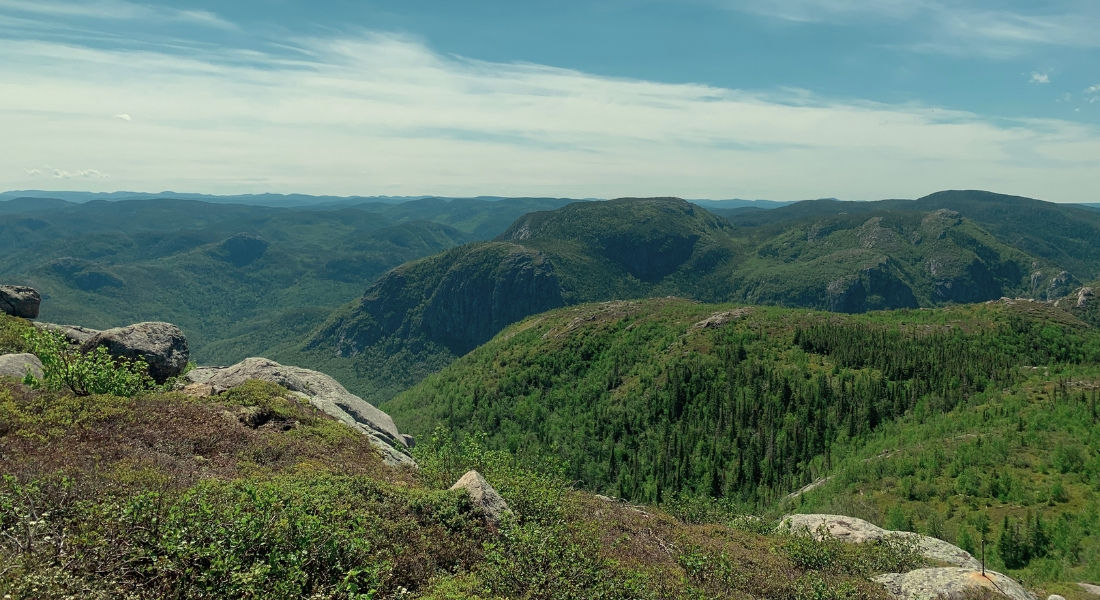
 Main Characteristics
Main Characteristics
- Altitude: The summit reaches 980 meters.
- Distance: About 8.4 kilometers round-trip.
- Difficulty: Intermediate to difficult due to steep and rocky sections.
- Duration: About 3 to 6 hours round-trip, depending on walking pace.
The Mont-du-Lac-des-Cygnes hike is an iconic excursion located in the Grands-Jardins National Park, in the Charlevoix region of Quebec. It is a popular destination for outdoor enthusiasts and hiking lovers for its breathtaking panoramas and varied landscapes. You must not miss it on your eastern Canada tour!
From the summit, you can enjoy spectacular views of the Charlevoix region, including valleys, mountains, and sometimes even the St. Lawrence River on clear days. The trail crosses different ecological zones, ranging from coniferous forests to alpine landscapes.
The summit is an excellent opportunity for an iconic souvenir photo of Quebec's Great Outdoors.
#2. The trail
 Start of the Trail
Start of the Trail
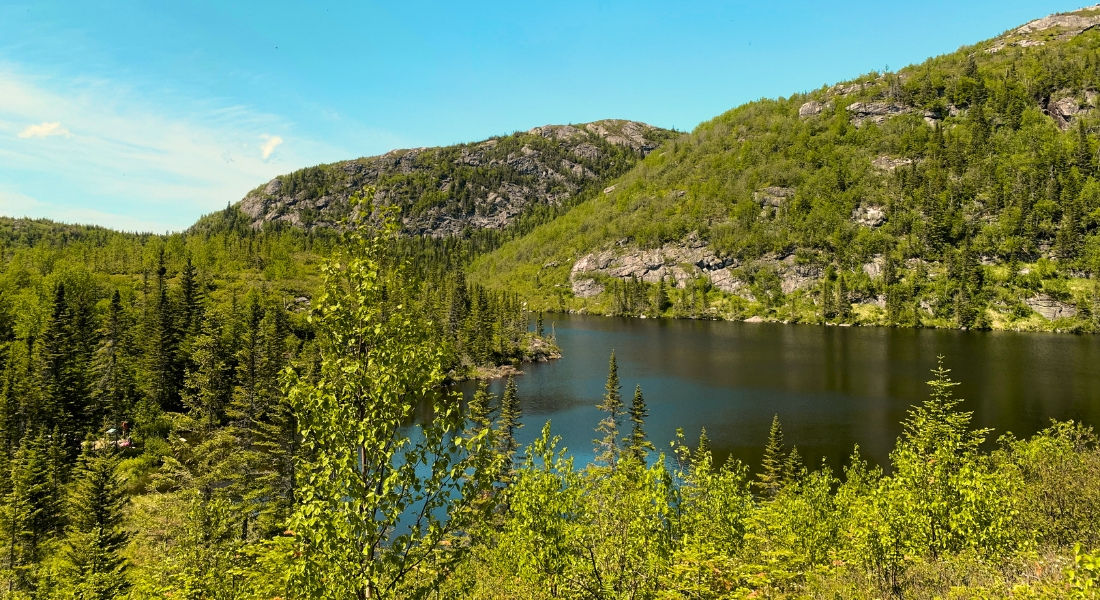
The hike begins at the main parking lot of Grands-Jardins National Park. From the start, hikers are greeted with clear signage and information about the trail and the region. The first section of the hike winds through a dense conifer forest. This initial section is relatively gentle, allowing hikers to warm up and get used to the terrain. The majestic trees provide a shaded canopy, creating a serene and refreshing ambience.
The ground is mainly composed of compacted soil and small stones, making the hike pleasant. At this stage, you will be able to observe a variety of native plants, such as balsam fir, black spruce, and lush undergrowth of ferns and mosses. Songbirds, such as chickadees and thrushes, are often heard in this part of the forest.
After about 1.5 kilometres, the trail begins to incline more steeply. The ascent becomes more pronounced, and hikers may feel a slight change in difficulty. The trail remains well-maintained, but tree roots and rocks become more frequent. As you gain altitude, the view through the trees becomes more spectacular, offering glimpses of the surrounding mountains.
This intermediate section is ideal for photography enthusiasts, as the filtered light through the trees creates beautiful visual effects. Frequent breaks are recommended to hydrate and admire the scenery. The flora gradually changes with altitude, and it is possible to see alpine shrubs and colourful lichens on the rocks.
 Middle of the Trail
Middle of the Trail
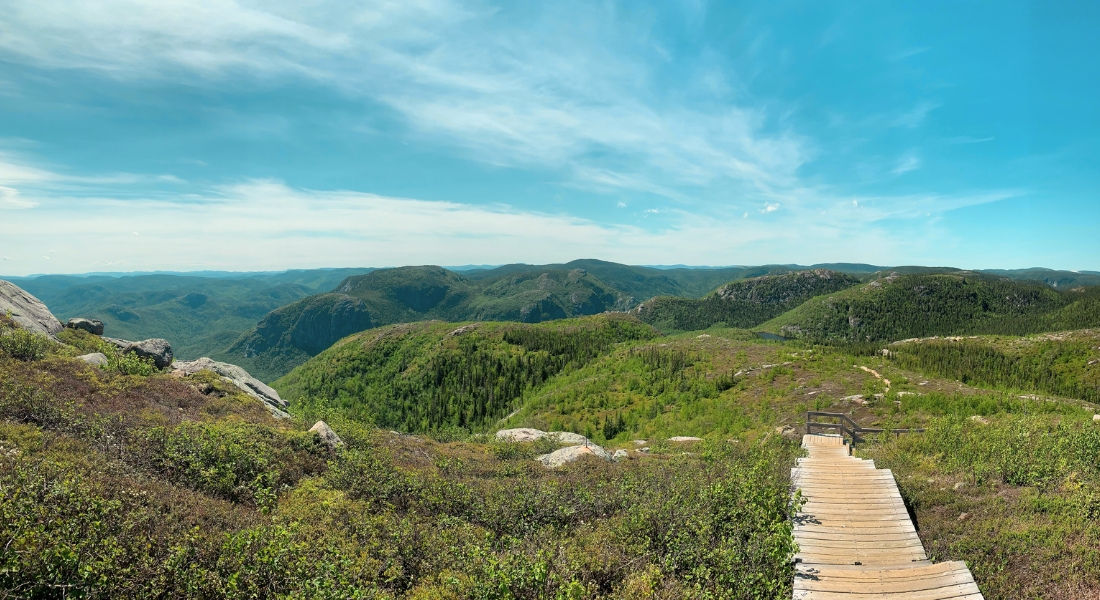
About halfway through, the hike becomes a tad more technical and demanding. The trail transforms into a series of narrow and rocky switchbacks. This section requires particular attention and good physical condition. Hikers often need to use their hands to climb over larger, steeper rocks.
The views start to open up dramatically, offering panoramas of the Malbaie River valley and the surrounding mountains. Cliffs and rocky outcrops add a dramatic dimension to the landscape. On clear days, it is possible to see up to tens of kilometres. This part of the trail is also known for its diverse wildlife. Mountain marmots and birds of prey, such as hawks and eagles, are often visible.
After this arduous climb, you will reach a rocky plateau. This section offers a well-deserved break with flatter terrain and a 360-degree panoramic view. The landscape is characterized by rocky outcrops, colourful lichens, and resilient alpine plants. The wind can be stronger here, so it is advisable to wear windproof clothing.
This plateau is an ideal spot for a lunch break. Sit on the rocks and admire the raw beauty of the park. The silence is often interrupted only by the distant cry of a bird or the rustling of the wind through the rocks.
 End of the Trail
End of the Trail
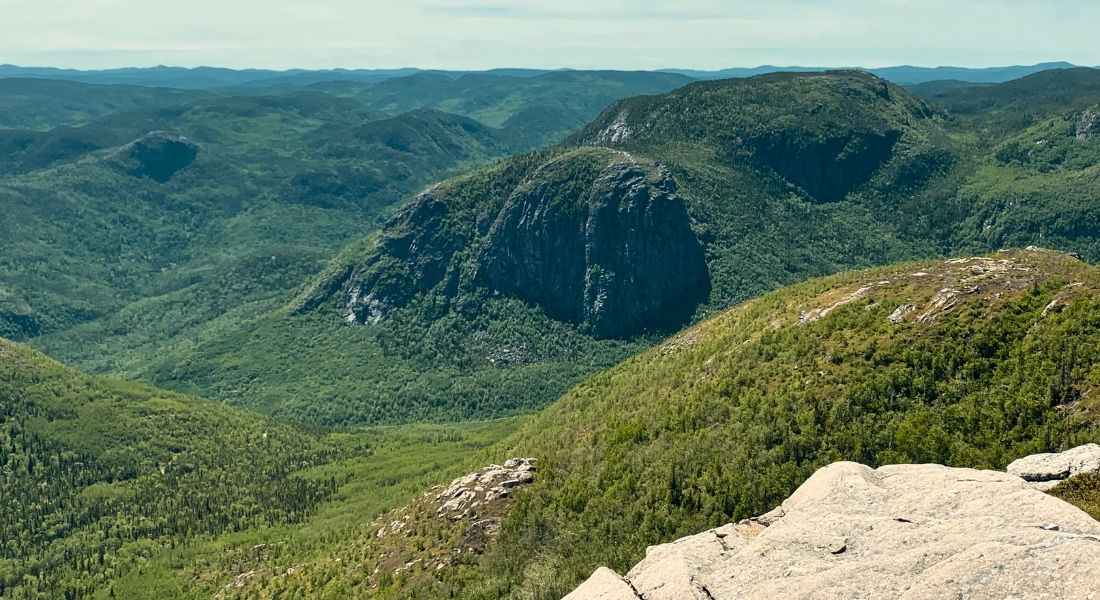
The last section before the summit is a steep but relatively short climb of wooden stairs. This part of the hike is exposed to the elements, which means it can be colder and windier. Hikers must be prepared to face changing weather conditions.
Despite the difficulty, the final ascent is extremely rewarding. With each step, the view becomes more and more spectacular. The summit is getting closer and the anticipation is mounting. It's important to take your time, stay hydrated, and take regular breaks.
The summit of Mont-du-Lac-des-Cygnes is a well-deserved reward. At 980 meters above sea level, the view is simply breathtaking. Hikers are greeted by a vast expanse of wilderness, with panoramic views of the Charlevoix mountains, valleys, and sparkling water bodies.
Take photos, rest, and enjoy the tranquility of true nature. It's also a good spot for wildlife watching, with chances to see birds of prey in flight or caribou in the distance.
The return follows the same trail, but the descent offers a different perspective. Take time to appreciate the views you have missed on the way up and discover the flora and fauna in detail. The descent can be tough on the knees, so using trekking poles for added stability is recommended.
Althought the hike is classified as difficult, with good preparation and a spirit of adventure, this hike can be one of the most memorable of your life!
#3. What to bring?
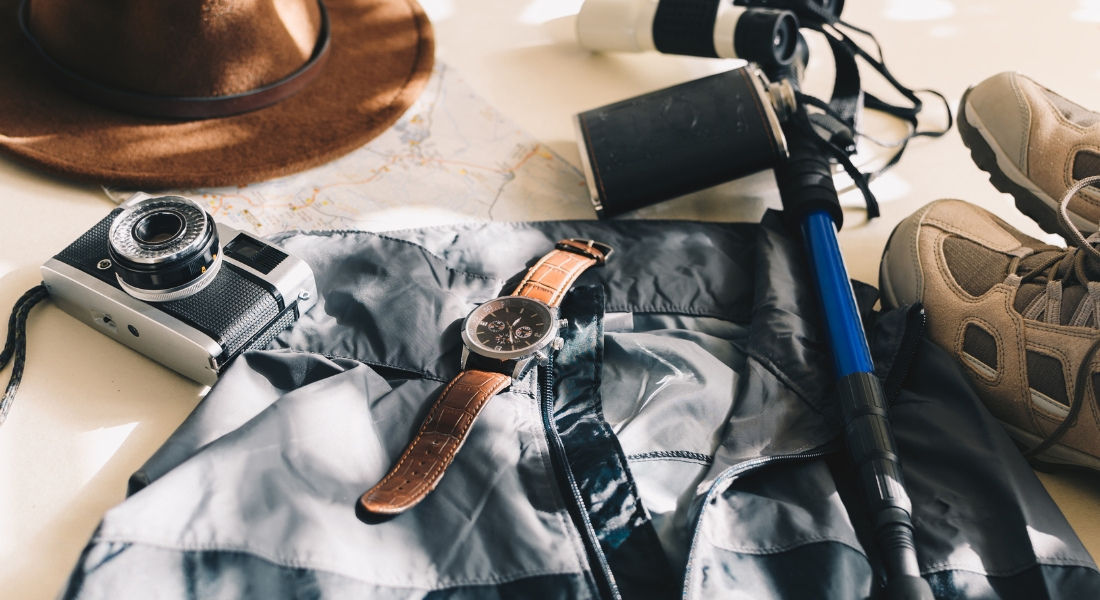
For a safe and enjoyable hike, here is a list of what you should bring:
 Clothing
Clothing
- A fleece or an insulating jacket to keep you warm.
- A waterproof and windproof jacket to protect you from bad weather.
- A hat, gloves, and scarf for colder or windy days.
- Sturdy hiking shoes with good grip are essential. They should be well broken in to avoid blisters and provide good ankle support.
It is crucial to dress in layers to adapt to the temperature variations encountered in the mountains. Opt for moisture-wicking fabrics such as polyester or merino wool.
 Food and Water
Food and Water
- Pack energy snacks like cereal bars, dried fruits, nuts, and chocolate. A light lunch, such as a sandwich, is also recommended.
- Bring at least 2 liters of water per person. Hydration systems like camelbaks can be very practical.
 Equipment
Equipment
- A comfortable backpack with adjustable straps and good ventilation.
- Including plasters, bandages, antiseptics, and personal medications.
- A park map, compass, or GPS to avoid getting lost.
- Sunscreen.
- Sunglasses.
- Wide-brimmed hat.
#4. How to access the Lac-des-Cygnes hike?
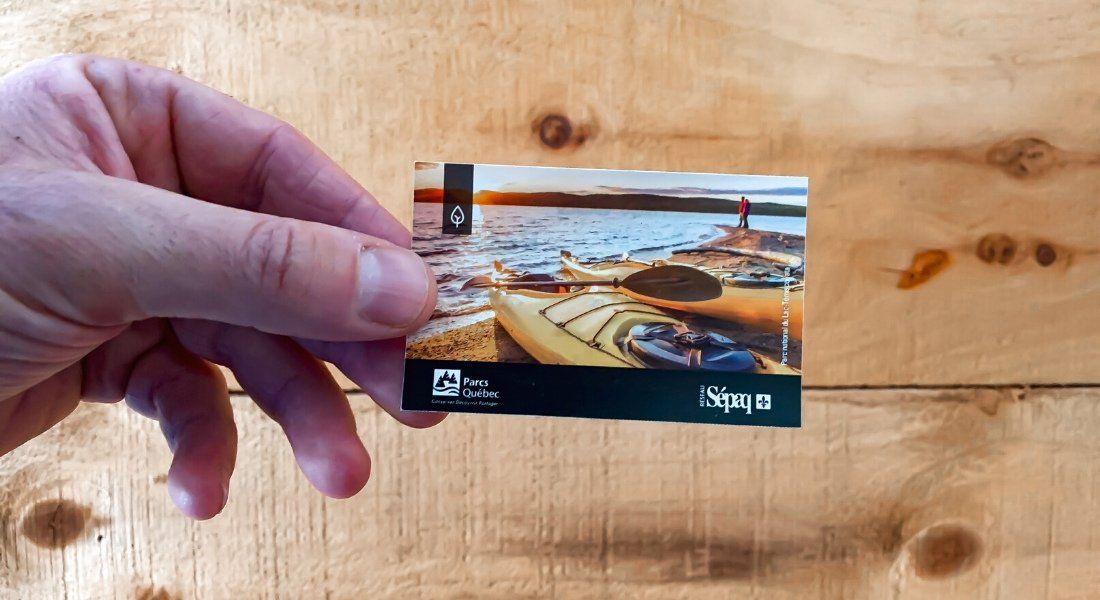
 Getting to the park
Getting to the park
From Quebec City, take route 138 towards Charlevoix. In Saint-Urbain, turn onto route 381 towards Notre-Dame-des-Monts. The park is well signposted, and parking is available at the entrance.
Since the Lac-des-Cygnes hike is located in Parc national des Grands-Jardins, you will need to pay the national park entrance fees.
 2024 Rates
2024 Rates
- Adult (18 years and older) : $9.85 per day.
- Child (17 years and under) : Free.
#5. Lac-des-Cygnes trail map
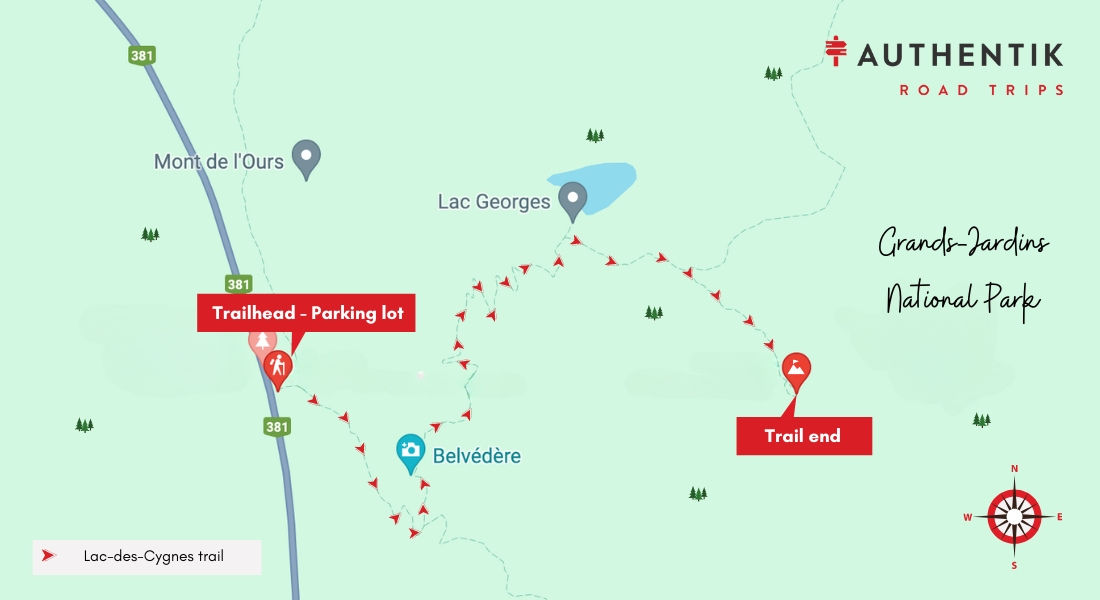
There you go! You are now ready to ascend Mont-du-Lac-des-Cygnes.
For any questions or suggestions, feel free to express yourself in the comment section below.












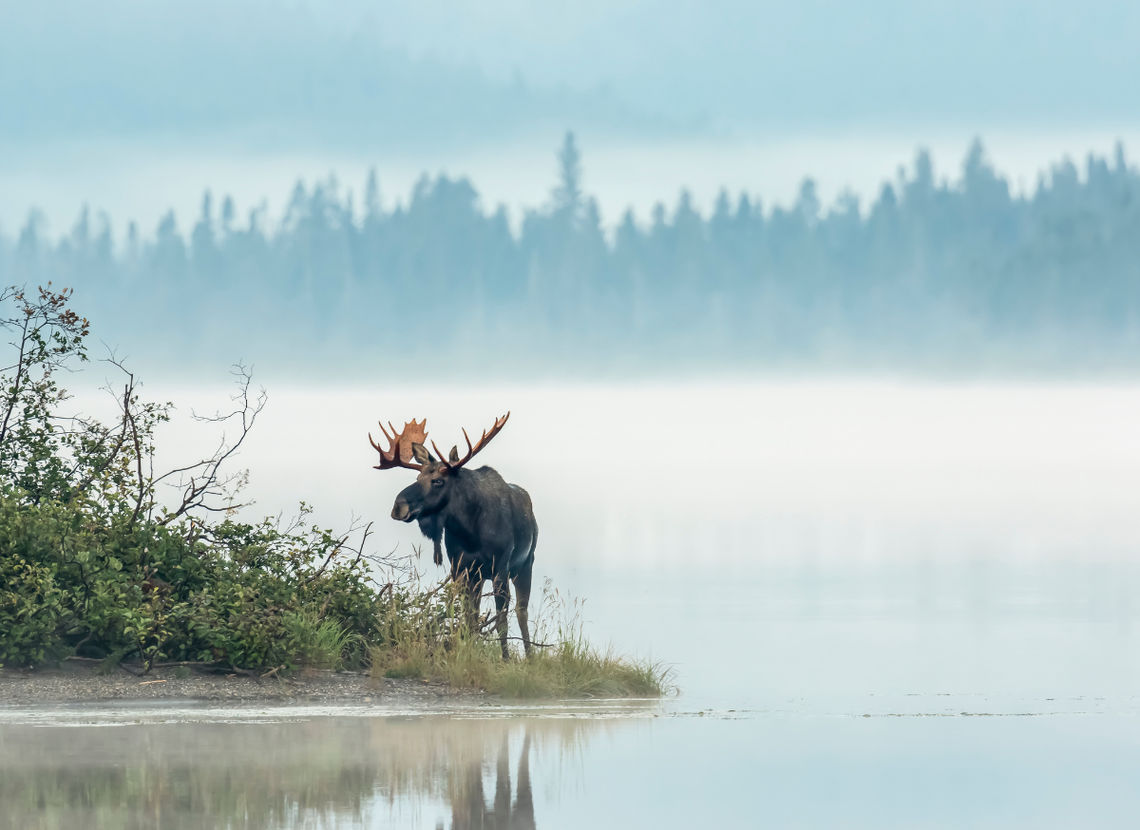



![Icefield Parkway between Banff and Jasper [The ultimate guide] Icefield Parkway between Banff and Jasper [The ultimate guide]](https://cdn.authentik.com/canada/images/blog/most_read_thumb/sans-titre_37761.jpg)









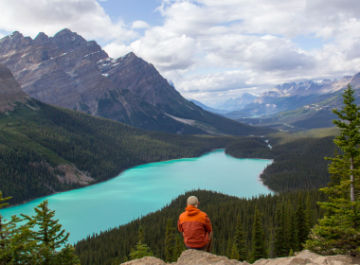






LEAVE A COMMENT
Répondre à: -
delete my replyYour e-mail address will not be shared